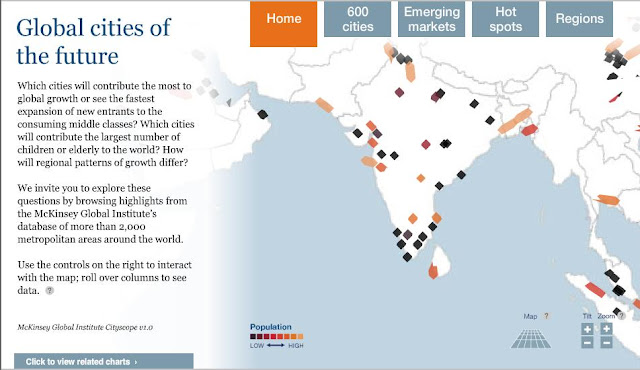Budget 2011: Taxation aspects & its effect on Industries
-----------------------------------------------------------------------------------------------
Monday February 28, 2011 09:04 pm PSTThe collection of Indirect taxes has seen a healthy growth during 2010-11 as said by our Finance Minister. The industry expectation was that owing to this, there may be a roll back on the tax rates that were reduced 2 years ago and partly increased last year.
However the Finance Minister's budget speech has come as a surprising blessing as he has maintained the rates as they were last year.
Central Excise Duty
The peak rate for central Excise Duty will continue to be 10%. Also in view of shifting to the GST (Goods and Service Tax) system by 2012, some goods (130 of them, which are consumer goods) that were exempt from Central Excise but had to pat VAT will come under Excise Duty but at a nominal change of 1%. The rest of the exempt goods (about 240 of them) will for the GST regime directly when it is implemented.
Readymade Garments
The optional excise duty regime, where readymade garment manufacturers could opt to pay duty only if they wanted the Cenvat credit, had been shifted to a mandatory rate of 10%. However the duty is applicable only on branded garments. The exports of the readymade garments will continue to enjoy 0% duty.
Agriculture
This sector has got a number of favourable tax benefits from the Finance Minister's proposed budget.
1. Air conditioning and refrigeration systems for cold Storage systems will fully be exempt from excise duty.
2. Conveyors used for cold storage, mandis and warehouses also go tax free.
3. Specified agricultural machineries for which the tax rate was reduced to 5% in the last budget are reduced to 2.55 in the proposed budget. Spare parts for these equipments are also included at the same rate in the proposed budget to encourage local manufacturers.
4. Drip-irrigation systems will face a reduced change of 5% from the 7.5% that they had to pay earlier.
5. De-oiled rice bran cake will face 0% excise with a view to promote milk production. At the same time it will face 10% export duty to promote internal consumption.
Manufacturing Industry
Several manufacturing industries have got favourable treatment in the proposed budget. Imports of certain raw materials are going to cost lesser, with a view to create value addition in India by manufacturing finished products from these raw materials. Some of them are:
a. Raw Silk
b. Raw materials used for Textiles, chemicals, ferro-alloys and paper manufacturing,
c. Technical fiber & yarn
d. Stainless steel scrap
e. Raw material for syringe and needles manufacturing
f. Components and parts for manufacturing mobile phones, electronic components, ink-jet and laser-jet printers.
The other aspect of the proposed budget is to protect the Indian environment and natural resources for this several proposals have come up:
1. Increasing the export duty for iron ore to a flat rate of 20%. At the same time the export duty for iron-ore pellets has been reduced to 0% to encourage value added exports.
2. Cement industry will get raw materials at a lesser cost as the tax on petcoke & gypsum have been reduced to 2.5%.
3. There are a whole lot of supports for products which will protect or conserve the environment. Some of the products / industries that get a boost are electric vehicles, fuel cell and hydrogen cell technologies, hybrid vehicles, kits for hybrid vehicles developed indigenously, LED lights, solar modules, crude palm stearin used to make soaps that are environment friendly and enzyme based tanning preparations.
4. Power plant equipment manufacturers for mega and ultra mega power plants can now rejoice as they will be exempt from excise duty.
5. Ship building industry has also been given a boost by exempting tax on import for spares and capital goods for both the manufacturers and ship owners.
6. Newspaper printers and cinematographers have also been given benefits for their machineries and films respectively.
Services Sector
Going typical with the trend of widening the services that can be taxed, the Finance Minister has proposed a number of measures. The industries that now will come under the services tax net are;
i. Hotel with tariffs above Rs.1000 per day
ii. Air-conditioned restaurants that serve liquor
iii. Hospitals which have over 25 beds and central air-conditioning
iv. Insurance products that have an element of investment
v. Legal and arbitration services offered by companies and individuals
Air tickets which are already under the service tax will be changed higher going forward.
Summary
The proposed budget has taken a view to protect the local industries and the environment. At the same time value added manufacturing and exports are being promoted. The agriculture sector has been given a good boost. And going with the past trend, the service sector has been widened for taxability.


Comments
Post a Comment
If you have any doubts, please let me know